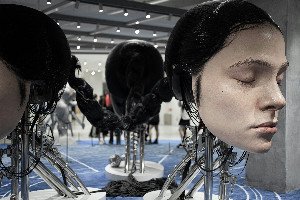Stefan Norrgård
En märklig mans liv och arbete
Introduction
En märklig mans liv och arbete. Utforska Johan Leches (1704–1764) liv och vetenskapliga arbete i Finland, med fokus på hans meteorologiska och fenologiska observationer samt deras inverkan på klimathistorisk forskning.
Abstract
I Finland är Johan Leche (1704–1764) mest känd för att ha gjort en serie meteorologiska och fenologiska observationer mellan 1748 och 1764. Att han anlände till Åbo utan tidens nyaste meteorologiska instrument, den så kallade svenska termometern, som utvecklats av Celsius i början av 1740-talet, påverkade utan tvekan Leches vetenskapliga liv och karriär. Tidigare forskning om Johan Leche kan grovt indelas i tre kategorier. Till den första kategorin hör klimathistoriska rekonstruktioner utgående från Leches meteorologiska och kryofenologiska observationer. Ett av uppsatsens mål är följaktligen att belysa tidigare obesvarade frågor gällande Leches meteorologiska observationer, såsom var de gjordes, om han de facto gjorde alla observationer ensam eller om han delade på bördan med någon kollega. Till den andra kategorin hör beskrivande biografiska verk om vetenskapsmannen Leche. I denna uppsats knyts klimatteorier samman med meteorologiska observationer och sett ur det här perspektivet kan Johan Leche inte studeras i ett vakuum. Av nämnda orsak intar även astronomen och Vetenskapsakademiens ständige sekreterare Pehr Wargentin (1717–1783), som också hjälpte Leche med sammanställningen av de meteorologiska observationerna, en central roll i uppsatsen. Till den tredje kategorin hör ett föredrag som hölls av Helsingfors universitets förste professor i meteorologi, Oscar Johansson (1878–1956). Johansson lyfte fram för tiden relevanta klimatologiska frågor och Leches reflektioner om periodicitet. Uppsatsens uppgift är således att belysa, för att citera Johansson, ”denna märklige mans lif och arbete”.
Review
This paper, titled "En märklig mans liv och arbete" (A Remarkable Man's Life and Work), promises a detailed and nuanced examination of Johan Leche's contributions to science, particularly his meteorological and phenological observations in Finland between 1748 and 1764. The abstract clearly articulates the paper's central aim: to move beyond existing climate-historical reconstructions and descriptive biographies by addressing previously unanswered questions regarding Leche's methodology and placing his work within a broader historical and theoretical context. This approach is highly commendable, indicating a rich and layered analysis of a significant figure in early modern scientific inquiry in the Nordic region. A particular strength lies in the stated intent to delve into specific methodological questions surrounding Leche's observations, such as their precise location and whether he performed them unilaterally or collaboratively. This focus addresses crucial gaps in our understanding of data provenance and reliability, which is vital for any climate-historical reconstruction. Furthermore, the abstract's emphasis on connecting Leche's observations with contemporary climate theories, and the explicit inclusion of figures like Pehr Wargentin—who aided in the compilation of observations—demonstrates an awareness of the social and intellectual networks that shaped scientific practice. This integrated perspective, which also acknowledges Oscar Johansson's earlier reflections on Leche, positions the work as a substantial contribution to the history of science, not just a biographical account. The mention of Leche's arrival in Turku without the "Swedish thermometer" also hints at an interesting exploration of technological limitations and their impact on scientific output. The ambitious scope, interweaving biographical details with scientific methodology, climate theory, and the social context of science, suggests that this paper will be a valuable addition to the literature. While the abstract effectively outlines these objectives, the success of the paper will depend on the depth and clarity with which these intricate connections are drawn. Specifically, a thorough discussion of how the lack of modern instrumentation impacted Leche's work and its subsequent interpretation would be particularly insightful. This paper appears poised to offer a comprehensive and insightful re-evaluation of Johan Leche, cementing his "remarkable" status not just through his observational data, but through a holistic understanding of his scientific life and the context in which it unfolded. I anticipate this will be a significant and highly engaging piece of scholarship.
Full Text
You need to be logged in to view the full text and Download file of this article - En märklig mans liv och arbete from AURAICA. Scripta a Societate Porthan edita .
Login to View Full Text And DownloadComments
You need to be logged in to post a comment.
Top Blogs by Rating
The Evolution of Knowledge in...
By Sciaria
The Unseen Threads: Why Democr...
By Sciaria
Beyond Human Hands: Discoverin...
By Sciaria
Favorite Blog
Beyond the Facade: Unearthing...
By Sciaria
Unlocking the Micro-World: The...
By Sciaria
The Unseen Threads: Why Democr...
By Sciaria
Related Research
Rekayasa mesin stirling untuk pembangkit listrik tenaga surya
Design analysis of pancanaka 2000 tooth bucket structure using finite element method
Efektivitas metode pqrst (preview, question, read, summarize, test) berbantuan media digital aksi (asesmen kompetensi siswa) terhadap keterampilan membaca pemahaman siswa kelas iv sdn ciparay 1
Share
Notice Board
- HOW DO LEARNING MODELS AND MEDIA AFFECT STUDENTS' SCIENCE LITERACY?: A REVIEW
- INTEGRATION OF DIGITAL TECHNOLOGY AND CHARACTER EDUCATION: BUILDING A RESILIENT GENERATION IN THE ERA OF THE INDUSTRIAL REVOLUTION 5.0
- PENINGKATAN LAYANAN DAN PENDAMPINGAN PENYUSUNAN LAPORAN KEUANGAN KOPERASI KARYAWAN UNARS




